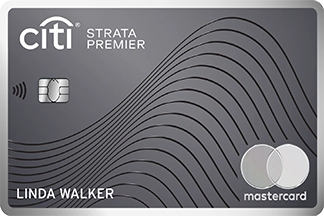- myFICO® Forums
- FICO Scoring and Other Credit Topics
- Understanding FICO® Scoring
- Re: 1 card from 89% to 48% --> +26 points!
- Subscribe to RSS Feed
- Mark Topic as New
- Mark Topic as Read
- Float this Topic for Current User
- Bookmark
- Subscribe
- Mute
- Printer Friendly Page
1 card from 89% to 48% --> +26 points!
Is your credit card giving you the perks you want?
Browse credit cards from a variety of issuers to see if there's a better card for you.
- Mark as New
- Bookmark
- Subscribe
- Mute
- Subscribe to RSS Feed
- Permalink
- Report Inappropriate Content
Re: 1 card from 89% to 48% --> +26 points!
@SouthJamaica wrote:In other contexts I have found that the rounded percentages in experian.com are the ones that count. So I'm going with 89%.
So you're saying that the conventional discussion/theory of any non-zero decimal being rounded up isn't accurate in your opinion?
- Mark as New
- Bookmark
- Subscribe
- Mute
- Subscribe to RSS Feed
- Permalink
- Report Inappropriate Content
Re: 1 card from 89% to 48% --> +26 points!
@Anonymous wrote:
@SouthJamaica wrote:In other contexts I have found that the rounded percentages in experian.com are the ones that count. So I'm going with 89%.
So you're saying that the conventional discussion/theory of any non-zero decimal being rounded up isn't accurate in your opinion?
Absolutely. I have found that the rounded percentages on experian.com are what moves my score.
And obviously experian.com does not always round up or down as we were taught to do it in grade school.































Total revolving limits 568220 (504020 reporting) FICO 8: EQ 689 TU 691 EX 682
- Mark as New
- Bookmark
- Subscribe
- Mute
- Subscribe to RSS Feed
- Permalink
- Report Inappropriate Content
Re: 1 card from 89% to 48% --> +26 points!
@SouthJamaica wrote:
@Anonymous wrote:
@SouthJamaica wrote:In other contexts I have found that the rounded percentages in experian.com are the ones that count. So I'm going with 89%.
So you're saying that the conventional discussion/theory of any non-zero decimal being rounded up isn't accurate in your opinion?
Absolutely. I have found that the rounded percentages on experian.com are what moves my score.
And obviously experian.com does not always round up or down as we were taught to do it in grade school.
+1
I have also found that anything above xx.00 is rounded up, so I always play it safe by hitting at the whole % or under of the threshold I am trying to cross.
- Mark as New
- Bookmark
- Subscribe
- Mute
- Subscribe to RSS Feed
- Permalink
- Report Inappropriate Content
Re: 1 card from 89% to 48% --> +26 points!
@Anonymous wrote:
@SouthJamaica wrote:
@Anonymous wrote:
@SouthJamaica wrote:In other contexts I have found that the rounded percentages in experian.com are the ones that count. So I'm going with 89%.
So you're saying that the conventional discussion/theory of any non-zero decimal being rounded up isn't accurate in your opinion?
Absolutely. I have found that the rounded percentages on experian.com are what moves my score.
And obviously experian.com does not always round up or down as we were taught to do it in grade school.
+1
I have also found that anything above xx.00 is rounded up, so I always play it safe by hitting at the whole % or under of the threshold I am trying to cross.
But SJ is saying that his xx.5x was rounded down.
- Mark as New
- Bookmark
- Subscribe
- Mute
- Subscribe to RSS Feed
- Permalink
- Report Inappropriate Content
Re: 1 card from 89% to 48% --> +26 points!
@Anonymous wrote:
@Anonymous wrote:
@SouthJamaica wrote:
@Anonymous wrote:
@SouthJamaica wrote:In other contexts I have found that the rounded percentages in experian.com are the ones that count. So I'm going with 89%.
So you're saying that the conventional discussion/theory of any non-zero decimal being rounded up isn't accurate in your opinion?
Absolutely. I have found that the rounded percentages on experian.com are what moves my score.
And obviously experian.com does not always round up or down as we were taught to do it in grade school.
+1
I have also found that anything above xx.00 is rounded up, so I always play it safe by hitting at the whole % or under of the threshold I am trying to cross.
But SJ is saying that his xx.5x was rounded down.
I'm not "saying" it, that's the fact.































Total revolving limits 568220 (504020 reporting) FICO 8: EQ 689 TU 691 EX 682
- Mark as New
- Bookmark
- Subscribe
- Mute
- Subscribe to RSS Feed
- Permalink
- Report Inappropriate Content
Re: 1 card from 89% to 48% --> +26 points!
@Anonymous wrote:
@Anonymous wrote:
@SouthJamaica wrote:
@Anonymous wrote:
@SouthJamaica wrote:In other contexts I have found that the rounded percentages in experian.com are the ones that count. So I'm going with 89%.
So you're saying that the conventional discussion/theory of any non-zero decimal being rounded up isn't accurate in your opinion?
Absolutely. I have found that the rounded percentages on experian.com are what moves my score.
And obviously experian.com does not always round up or down as we were taught to do it in grade school.
+1
I have also found that anything above xx.00 is rounded up, so I always play it safe by hitting at the whole % or under of the threshold I am trying to cross.
But SJ is saying that his xx.5x was rounded down.
Excuse me.
I meant rounded UP.
- Mark as New
- Bookmark
- Subscribe
- Mute
- Subscribe to RSS Feed
- Permalink
- Report Inappropriate Content
Re: 1 card from 89% to 48% --> +26 points!
- Mark as New
- Bookmark
- Subscribe
- Mute
- Subscribe to RSS Feed
- Permalink
- Report Inappropriate Content
Re: 1 card from 89% to 48% --> +26 points!
@Anonymous wrote:
According to the experts, the first thread in UFS, traditional rounding is used by the algorithm, so what has been taught here for years was incorrect. It’s just like normal rounding in school according to the experts.
Yes, I read that too when the experts visited us, and was glad to see them debunk the urban legend that everything gets rounded up.
But I was referring to experian.com, where my experience has been:
1. it is the rounded percentage, not the actual percentage, that moves my score, and
2. the rounding has not been like the rounding we were taught in school.































Total revolving limits 568220 (504020 reporting) FICO 8: EQ 689 TU 691 EX 682
- Mark as New
- Bookmark
- Subscribe
- Mute
- Subscribe to RSS Feed
- Permalink
- Report Inappropriate Content
Re: 1 card from 89% to 48% --> +26 points!
@SouthJamaica wrote:
@Anonymous wrote:
According to the experts, the first thread in UFS, traditional rounding is used by the algorithm, so what has been taught here for years was incorrect. It’s just like normal rounding in school according to the experts.Yes, I read that too when the experts visited us, and was glad to see them debunk the urban legend that everything gets rounded up.
But I was referring to experian.com, where my experience has been:
1. it is the rounded percentage, not the actual percentage, that moves my score, and
2. the rounding has not been like the rounding we were taught in school.
You were definitely at 90% inside the algorithm with 89.5733333333% actual utilization.
Why that value would be truncated to 89% by the Experian front-end is a mystery. Are you absolutely sure it's 89.573?
There is no rounding method that would result in 89% with 89.573. That was truncated, assuming your math is correct. (Yeah, I know truncation is a form of directed rounding.)
Someone just reported losing 10 points at 68% individual utilization on Experian (aggr. 2%). There is no way to tell what really changed your score between 89% or 90% and 48% here.
Whoever programmed that front-end would really have to go out of their way to use something other than the default rounding method in either PHP or Javascript, which is round to nearest integer - 90 in your case.
[Edit to Add: I don't see that truncation with my Experian reports. 1688/29000 = 5.82 = 6%.]

- Mark as New
- Bookmark
- Subscribe
- Mute
- Subscribe to RSS Feed
- Permalink
- Report Inappropriate Content
Re: 1 card from 89% to 48% --> +26 points!
So Cassie, is your theory that SJ's 89.xx% is being rounded up [to 90%] in terms of what the Fico algorithm is considering, but at the same time it's being truncated to 89% on the Experian front end and thus because SJ is seeing his score move he is then believing that 89% is in fact the meaningful number being considered, not 90%? If so, you're theory is that Experian fluff exists on their front end just like many other CMS.
Your thoughts on that, SJ?
I don't know that I really believe that the years of rounding testing done on here has all been false. I mean there have been tons, literally hundreds of tests right around the known threshold points (mostly the main one for aggregate) where people have gone to the hundreths percentage wise going across and back and all cases that I've heard of near as I can remember have verified upward rounding on percentages that contain decimals past the whole number. It just seems impossible to me that all of those tests were somehow false positives. Am I missing something here?